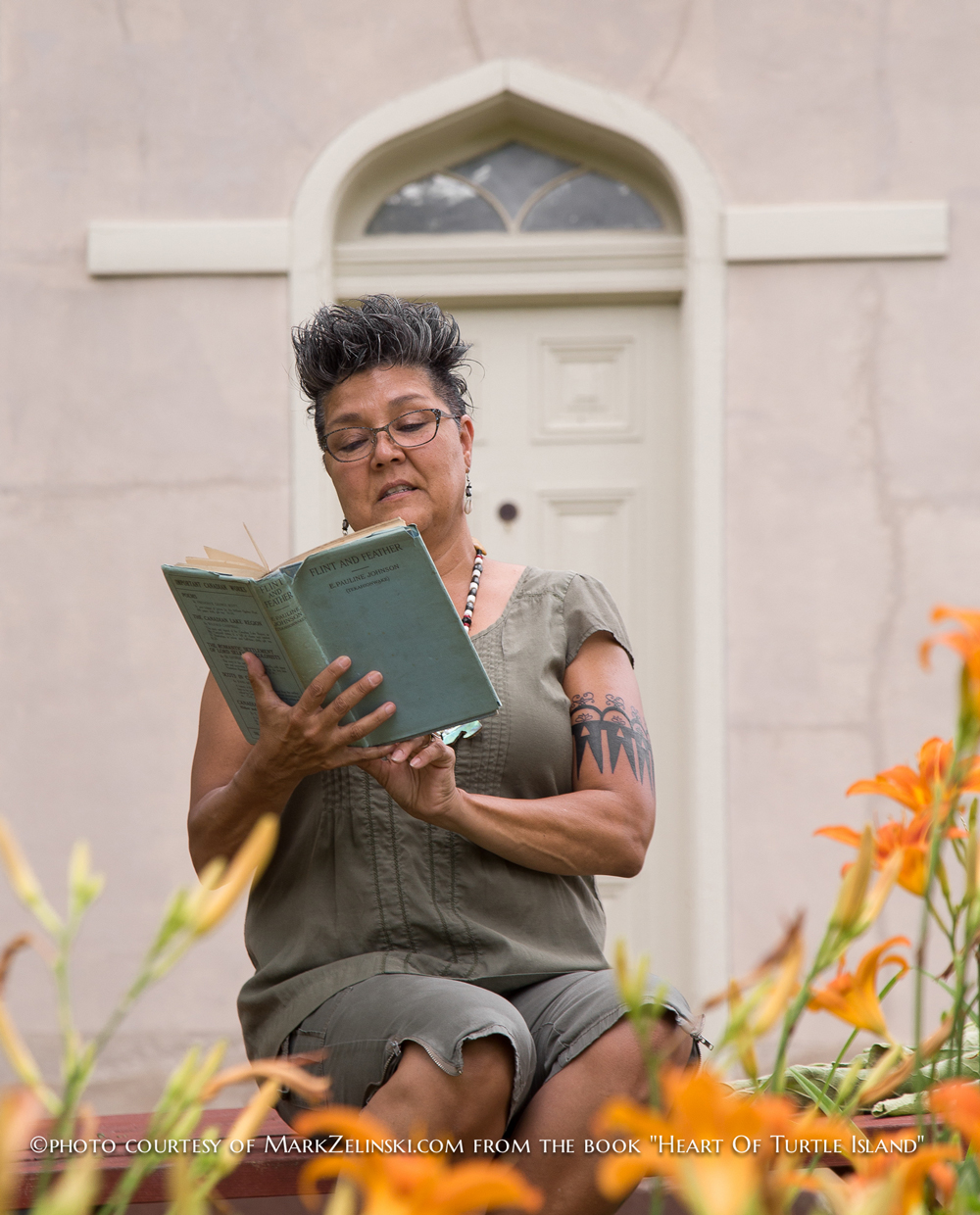
New Writer-in-Residence Janet Rogers
The title of Janet Rogers new poetry collection, As Long as the Sun Shines, is a reference to theTwo Row Agreement - the treaty written in 1613 between the Onkwehonweh (original people) of Turtle Island (North America) and European immigrants. The agreement envisions two vessels travelling down the same river together; autonomous, but side by side.
"As long as the sun shines, as long as the grass grows - that's how long we wanted our two row agreement to last," says Rogers, the new University of Alberta Writer-in-Residence. "It was Truth and Reconciliation 400 years ago. My poems reiterate this - that we've already made this agreement. We may polish it up but you need to remember what your ancestors agreed to, which seems to change at will."
Originally from Ontario, Rogers relocated to Victoria in 1994 and served as the city's Poet Laureate from 2012 to 2015. Her background is Haudenosaunee, or Mohawk, also referred to as the Iroquois or Six Nations Confederacy - the original signatories of the Two Row Agreement. It's a legacy and a heritage that exerts itself in her practice as a writer, poet, media artist and literary mentor. It also flows through her research (she is revisiting the work of E. Pauline Johnson, the famous 19th century Mohawk writer) and in her everyday life navigating a country that continues to struggle with its problematic colonial past - and present.
"My energy is not focused on changing anyone's mind. It's exhausting and I don't have time for that," laughs Rogers, adding that it's a Haudenosaunee trait to be blunt. "There's no need for any one culture or race to feel threatened about the inclusion of different voices. It only adds to your story."
Diversity is equally important to avoid what she calls the "lazy reach" of media and other organizations who continue to draw on a small well of expertise. "It's a vast nation, and you can identify native people in every practice of study," she says. "It's about having those voices at the management level, in faculty positions, at the committee level - who will be able to contribute the resources and identify those experts in the community. It's also about shifting out of the centre of those things, making space, creating opportunities. We're making great strides, but let's go further. There are absolutely no more excuses."
Forever : An Original Poem by Janet Rogers from Jackson 2bears on Vimeo.
Arriving on campus just over a month ago, Rogers is already "blown away" by the support she has received from staff and faculty in English and Film Studies, as well as former UAlberta Writers-in-Residence Marilyn Dumont and Richard Van Camp. She is also deeply impressed by the department's rising Indigenous stars, PhD students' Billy-Ray Belcourt and Jordan Abel, both of whom hold the Griffin Poetry Prize.
Rogers believes that opening up space for Indigenous voices across Canada is a crucial step in reconciliation, especially in the classroom. "There are non-native people teaching native literatures and that needs to be corrected," she says. "Invite native people who are active writers to teach those courses. It's absolutely invaluable for native students to see reflections of themselves in these positions."
This is the third of three residencies for Rogers, beginning earlier this year at the Joy Kogawa House in Vancouver where she conducted much of her research on "literary ancestor" E. Pauline Johnson, followed by the Institute of American Indian Arts in Santa Fe, New Mexico. Of this last residency, Rogers speaks passionately about her love for the tight-knit community of Indigenous artists and the area's "intense, sage-spotted" desert landscape - which, she admits, lay in close proximity to the Breaking Bad set in Albuquerque - another passion.
"Every residency has its own personality," she laughs. "Ultimately, it gives you time and space to focus."
As part of her year-long residency, Rogers will mentor emerging UAlberta and community writers, organize events and finalize her research on E. Pauline Johnson. On October 25, she will be holding an inaugural reading of her book As Long as the Sun Shines, and is in the early stages of organizing a spoken poetry and storytelling event for "black and brown voices" to be held in late November.
"Just to see the power and talent within those two communities - it's my dream," she says.
Rogers finds her own inspiration in the works of other successful women in the arts, the aforementioned E. Pauline Johnson, and more contemporaneously, Tanya Tagaq, an Inuit throat singer and writer.
"[Tagaq] says exactly the things I think need to be said in terms of the zeitgeist of Indigenous realities and experiences," says Rogers. "It takes that extra effort to push that female voice to the fore, and that's what motivates me. Not just my voice, but others as well. So rather than work from a place of resistance, let's work from a place of empowerment and promotion."
Janet Rogers' As Long as the Sun Shines Book and Reading takes place on Thursday, October 25 from noon to 1 p.m., 3-95 Humanities. All are welcome!
Writer-in-Residence office: HC 3-91, 3rd floor Humanities Centre
Phone: (780) 492-7811
Email: jrogers@ualberta.ca
Office Hours: Tuesday - Thursday: 1-5:00 p.m.
Monday & Friday by appointment
Read more about the Writer-in-Residence programhere.
Writer-in-Residence program marks 40 years on campus (2016 article).
